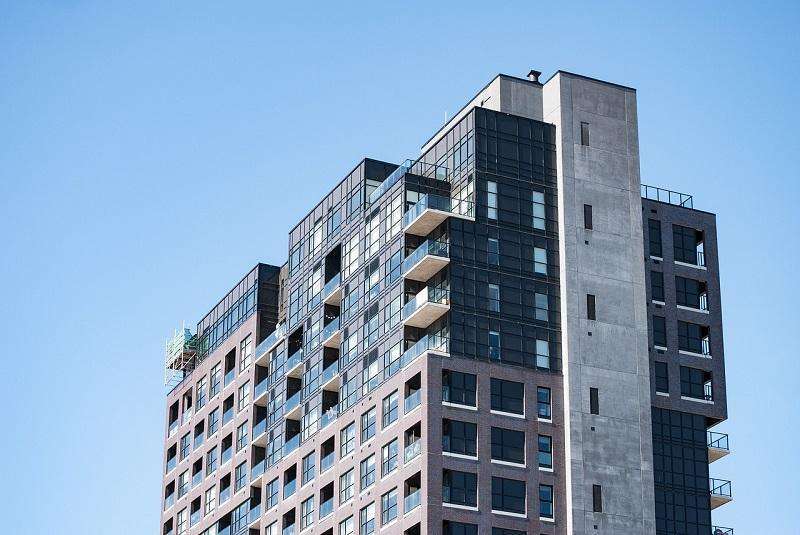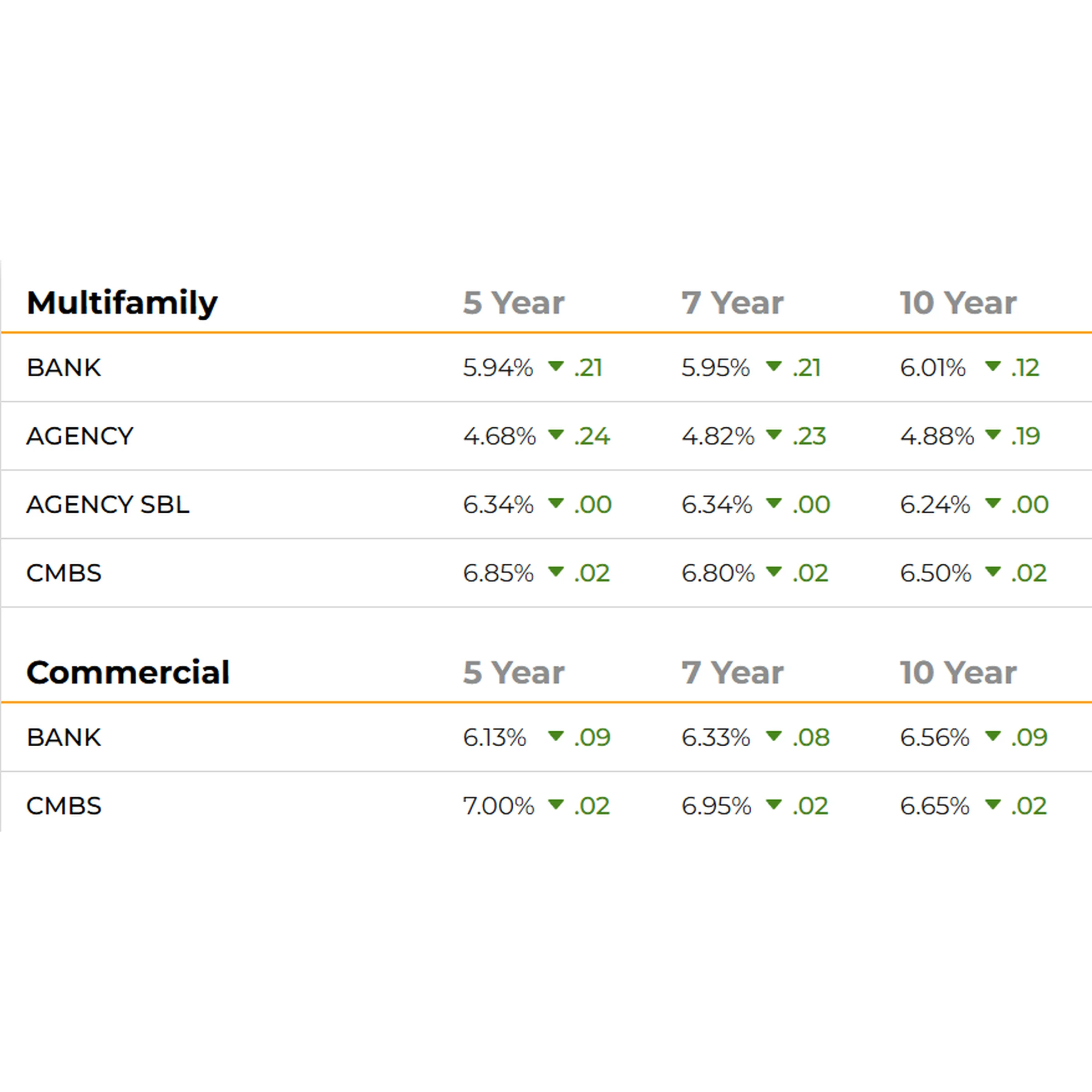A number of market participants agree that multifamily sales activity is on the upswing despite the current low transaction numbers.
As the Federal Reserve nears the end of its tightening cycle, a small but growing share of National Multifamily Housing Council survey respondents are starting to report a pickup in apartment deal flow.
That is the one positive from NMHC’s Quarterly Survey of Apartment Market Conditions for July 2023. But it is reflected by a group of dealmakers in the space that were surveyed by GlobeSt.com.
Survey Results
Otherwise, survey results in all metrics were below the breakeven level (50), extending lengthy consecutive monthly results in that direction.
Market tightness was 26, sales volume 40, equity financing 22, and debt financing 18.
“Both debt and equity capital continue to pull back from the apartment market amidst an environment of rising interest rates and slowing rent growth,” NMHC’s Vice President of Research, Caitlin Sugrue Walter said.
As a result, transaction volume fell for the fifth consecutive quarter, with current apartment owners unwilling to offer the lower prices buyers deem necessary to compensate for this diminished economic outlook, Sugrue Walter said.
The Market Tightness Index indicated looser market conditions for the fourth consecutive quarter. More than half of respondents (57%) reported markets to be looser than three months ago, while only 9% thought markets have become tighter.
About one-third said that they thought market conditions were unchanged over the past three months.
The Sales Volume Index reading of 40 marked the fifth consecutive quarter of decreasing deal flow, albeit with considerably less consensus among respondents than in preceding quarters.
Just over one-third reported lower sales volume, down from 56% of respondents who reported lower sales volume in April and 82% of respondents in January.
Meanwhile, 14% of respondents in July thought that volume was higher than three months ago, while nearly half of respondents (47%) reported no change in volume.
The Equity Financing Index showed considerably lower than the breakeven level (50). It was the sixth consecutive quarter in which equity financing became less available.
Fifty-seven percent of respondents reported equity financing to be less available than three months ago, while 40% of respondents believed availability to be unchanged. No respondents reported an increase in the availability of equity financing.
The Debt Financing Index reading of 18 indicated the eighth consecutive quarter in which debt financing became less available. Two-thirds of respondents reported that conditions have worsened for debt financing, 26% thought that conditions were unchanged, while just 3% reported that now is a better time to borrow than three months ago.
More Activity is Being Reported
Outside of the NMHC survey, apartment professionals say they are seeing some deals.
Roberto Casas, co-lead of the multi-housing group with JLL Capital Markets, tells GlobeSt.com that deal activity is picking up compared to the first half of the year as asset valuation activity increases due to loan maturities and fund level redemptions.
“There remains a dearth of available product in the market, leading to amplified buyer activity in the multihousing sector, and today, private buyers are proving to be the most active,” Casas said. “Additionally, we continue to see capital pivot to the multi-housing sector and new entrants to the market.”
Kevin Crook, Investors Management Group Director of Acquisitions & Dispositions, tells GlobeSt.com, that the recent uptick in activity is a positive sign. “I’d compare the transaction market this year to a middle school dance, with everyone hesitant to engage. If feels like buyers and sellers are finally moving to the center, ready to negotiate deals again.
“These periods of disconnect have delivered some of our best buying opportunities. We’ve negotiated price discounts, moved forward on the strength of the fundamentals, and capitalized on a great basis as the market recovered. We’re looking to duplicate that kind of success again in the coming months of the market correction.”
Scott Larson, Managing Principal of Pangea Mortgage Capital, tells GlobeSt.com he expects that the modest increase in overall multifamily transaction volume he is seeing will continue in the fourth quarter “as some transactions can only be extended for so long. We have seen a decrease in volume in the Southeast, but this is offset but increased volumes in the Midwest and West.”
Henry Manoucheri, CEO of Universe Holdings, tells GlobeSt.com that this is a great time to buy since there is limited availability and no competition like before.
“Even though Universe Holdings has remained active since the Fed started raising interest rates last year, we have recently noticed a modest uptick in deal flow and competition,” he said.
“The property fundamentals remain strong and as rates increase at a slower rate, people can buy homes. They will be forced to rent putting increasing pressure on rising rents. However, in the coming months, the larger institutions who have been on the sidelines will need to become more active since they will need to deploy all the capital (dry powder) prior to year’s end.”
‘Second Half Will be Explosive’ Narrative Revised
Jay Remillard, Managing Director at CP Capital US, tells GlobeSt.com, “A lot of people I’ve spoken with recently are actively buying and selling, though not yet to the levels they had hoped to hit by this point in the year. Outliers are core funds, who are still largely on the sidelines.”
Remillard said the “second half of 2023 will be explosive” narrative has been revised due to the Fed not yet officially slamming the brakes on rate hikes, but hopefully it will soon.
“The fourth quarter could see a wave of deals trying to get done before year-end, but most people aren’t expecting a healthy, ‘fully functioning’ market until next year.”
Brennen Degner, Managing Partner and CEO, DB Capital Management, tells GlobeSt.com he is starting to see sellers test the market with more realistic pricing.
“While there is still a significant bid/ask spread, it does seem to be narrowing a bit which bodes well for both the immediate and long-term future,” Degner said.
“As a result, we believe the pipeline for deals will continue to open over the next 12 months. We are already seeing more opportunities in Denver, Phoenix, and Las Vegas, which had all but shut over the past months.”
Peter Margolin, Commercial Loan Originator at Alliant Credit Union, tells GlobeSt.com that he is seeing a “fair amount” of multifamily transactions.
“Within multifamily more broadly, we are also seeing a decent amount of student housing opportunities,” Margolin said.
Littell added that while multifamily transaction activity has been on a clear downward trend, it is expected to level off over the coming quarters and not materially improve across all markets until there is more certainty around pricing.
CoStar: YoY Transaction Volume Down 58%
This uptick in activity, though, is climbing up from a deep trough.
Chad Littell, national director of US capital markets analytics at CoStar Group, tells GlobeSt.com that nationwide, year-over-year transaction activity is down 58% during the 12 months that ended in June 2023.
“The markets experiencing the largest decelerations in rent growth have taken the bulk of these transaction declines,” Littell said. “In contrast, markets with relative strength in maintaining rent growth and moderate supply deliveries have seen more stable transaction activity.”
By way of illustration, Littell said cities throughout the West, Sun Belt, and Southeast that were enjoying between 15% and 30% year-over-year rent growth 18 months ago have decelerated to just a few percent and, in many cases, are now showing negative annualized rent growth.
“As a result, the number of transactions in Atlanta, Austin, Dallas, Phoenix, Las Vegas, Miami, Nashville, and Tampa is down between 30% and 70% compared to the 12 months ending in the second quarter of 2022,” he said.
“The total consideration that changed hands during this period is no better. In most of these markets, sales activity is down between 50% and 80% compared to the 12 months ending in the second quarter of 2022. Seeing dollar volumes decline more sharply than transaction counts tell us that the average transaction size is also falling as large players take a more cautious approach.
Littell said markets faring better are generally secondary and tertiary markets, with Chicago being the notable primary market exception.
“Its transaction counts are up despite a 24% decline in dollar volume,” Littell said. “Its commonality shared with other relative winners may result from its Midwest location.”
Other notable secondary markets showing relative strength in activity, according to CoStar, include Canton, OH; Green Bay, WI; Fort Collins, CO; New Haven, CT; and Springfield, IL, all showing increased transaction counts and higher total dollar volumes trading hands than a year ago.
















